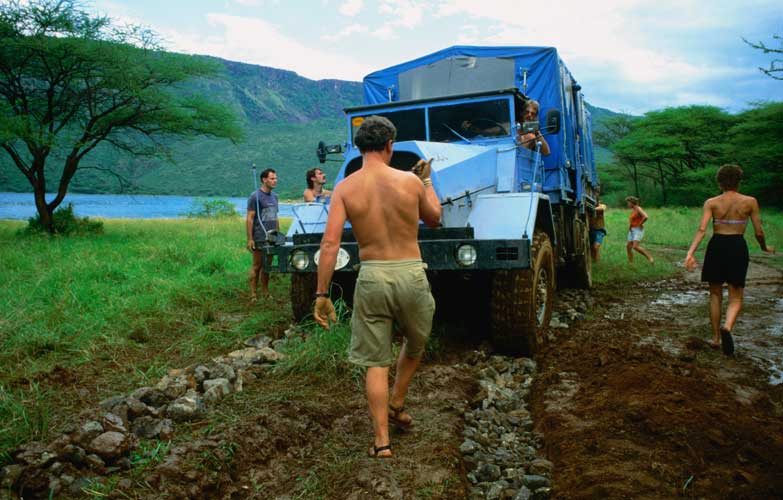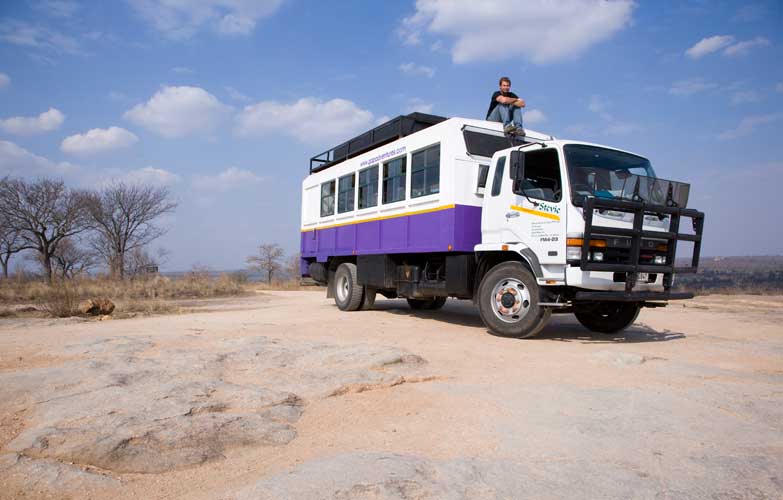
Life on a truck requires plenty of community spirit. You'll be split into cook groups and take turns shopping for supplies and coming up with meals. Sometimes you'll spend long days on board, giving time to get to know your new travel companions, to soak up the scenery and to wave at passers-by. At other times, you'll set up camp and stick around in one town for a few days, taking advantage of local attractions.
Mornings often start early in the overland world. While the cook group on duty rustles up some breakfast, you'll be taking down your tent, packing your possessions and if you’re not at a bush camp, maybe even having a shower. Days might be punctuated with stops to shop in markets, explore museums or visit temples.
Once the truck arrives at that night's camp, grab your tent buddy and pick a site. Evenings could be spent around camp fires or occasionally ditching the outdoors to eat in local restaurants.
Working out the total cost of an overland trip can be a headache. Remember that your outlay will essentially be split into three sections:
Pre-trip payment: the upfront cost generally covers use of the truck and its equipment (tents, cooking gear, etc) as well as the services of a knowledgeable guide. Some companies include certain activities in the upfront fee, so check exactly what's included. You're usually on your own when it comes to flights, visas, vaccinations and insurance.
Local payment: also known as the kitty, this is standard on all overland trips. It's usually payable in USD, or sometimes in GBP, EUR or the local currency. This cash payment, handed directly to the guide, covers the group costs on the road - things like camping fees, food and gas. It's essential to check the kitty cost before you leave home as it’s prone to change and might be higher than when you first booked.
Spending money: with the basics covered - transport, accommodation and food - the rest is entirely up to you. On many trips, every extra activity will incur an extra cost. If you're just along for the ride, here to soak up the scenery and shop in local markets, your daily expenditure will be low (think postcards, souvenirs, evening beers and phone calls home).
Other travellers want to take full advantage of the trip, indulging in every animal encounter, experiencing every adrenaline sport and tackling every optional extra along the way. Your chosen operator's site should have a comprehensive list of possible activities with their approximate price to help you budget.

Locker space is limited, so don’t go mad. Here are a few essentials to add to the usual list:
Different operators offer different perks, so decide what you're looking for beforehand. Would you rather rough it and save some cash? Or is the extra splurge worth it to know that someone else will be cooking your meals and that nights under canvas will be broken up by the occasional hotel stay? Would you rather pay up front and have lots of activities thrown in? Or would you prefer to pay for a bare bones trip and add on safaris, boat rides and temple tours as the mood takes you?
Just because it's an organised tour, that doesn't mean you don't have any responsibilities. Once you're on the road much will be taken care of - your work happens in the planning stages. Ask lots of questions and above all make sure you know what's included and what's extra.
Some suggestions to get you thinking about what to ask: